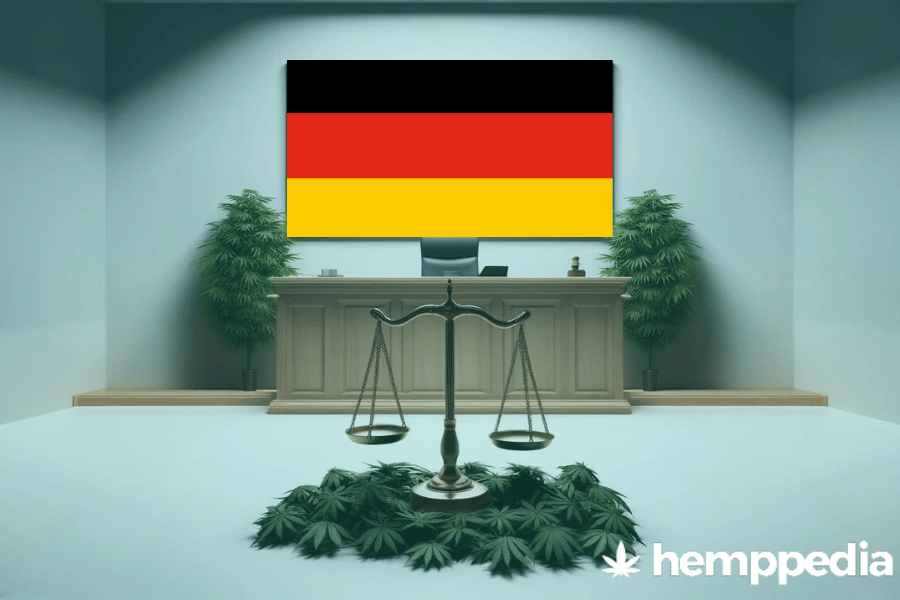TL;DR
Despite the pervasive global trend towards liberalization and leniency regarding CBD regulations, the legal status of CBD in Germany is complex and not entirely clear. CBD is legal if it is derived from EU-certified hemp varieties, does not contain more than 0.2% THC, and is not sold as a medicine or food supplement.
- Usage: Legal
- Possession: Legal with restrictions on THC content (0.2%)
- Significant Legal Distinctions: CBD derived from EU-certified hemp is legal, while CBD derived from other cannabis plants can face legal scrutiny
CBD, otherwise known as Cannabidiol, is one of the numerous cannabinoids found in the Cannabis plant. Unlike its infamous counterpart THC (tetrahydrocannabinol), CBD does not induce psychoactive effects, making it a more viable option for those seeking therapeutic benefits without the “high” generally associated with traditional marijuana products.
Overview of CBD Legislation
Key Terms
CBD (Cannabidiol): A non-psychoactive compound present in cannabis plants.
Hemp: A variety of cannabis that contains less than 0.2% THC, used for industrial purposes.
Marijuana: A variety of cannabis that contains more than 0.2% THC. The active ingredient makes users ‘high’ and it is classified as a narcotic under the Narcotics Act.
Legal Landscape
CBD is legal under EU Law, as long as it comes from industrial hemp and contains less than 0.2% THC. However, in Germany, CBD cannot be marketed as a food supplement or medicine without proper certification from the European Food Safety Authority and the Federal Institute for Drugs and Medical Devices.
Legal Status
Currently, CBD is legal in Germany, as long as it is from EU-certified hemp and contains a THC content below 0.2%. However, use is restricted to non-consumable purposes, meaning it cannot be sold as a food supplement or medication without proper authorization.
Regulatory Bodies
CBD in Germany is regulated by two main authorities; the Federal Institute for Drugs and Medical Devices responsible for medical cannabis, and the Federal Ministry of Food and Agriculture responsible for hemp cultivation and CBD products.
Conditions and Restrictions
In Germany, CBD must come from EU-certified industrial hemp, and its THC concentration must be less than 0.2%. Different types of products are allowed including oils, topicals, and edibles; however, these must have the required certifications and should not make medical claims.
Historical Context
Cannabis legislation in Germany has historically focused on controlling the distribution and consumption of THC-heavy strains. The legal handling of CBD, which is found in hemp, has been vague until recently. In 2017, the Narcotics Act was revised to accommodate medical cannabis, enabling the legal sale and prescription of cannabis and its derivatives for medical purposes.
Possession, Use, Cultivation, and Sale
Cultivation of hemp for CBD production is legal, provided it is EU-certified hemp. Age restrictions for purchasing CBD products are not clearly defined but it generally follows the unregulated market requirement, which is 18 years and above. Importing or exporting CBD is allowed, given that it complies with the 0.2% THC rule.
Enforcement and Penalties
Those non-complying with CBD regulations might face penalties such as social disciplinary sanctions or administrative fines. Non-compliant products can also be confiscated. Medical users must have a valid prescription to avoid these penalties.
Comparative Analysis
Compared to its European peers, Germany’s laws around CBD may sound stricter. In the UK and France, for instance, CBD products are widely available and can be sold as a food supplement or skincare product without hindrance.
Conclusion
In Germany, the legal status of CBD falls into a gray area due to certain conditions and restrictions. It seems the country’s regulatory structure around CBD is more stringent compared to some other European counterparts. Given the rapidly evolving international trends regarding CBD and cannabis, it remains to be seen where Germany will stand in the coming years.





